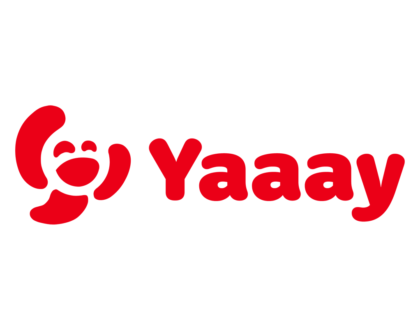20 Final Questions for your Japanese Job Interview

by Florian
“Any questions left?” How you respond to this can decide the outcome of your job interview. We collected 20 questions that will help you leave the company building with a smile.
コンテンツ
A good final impression
You’ve given your best, answered all the questions and presented yourself as attractive as possible. It’s almost over. You can feel yourself relaxing a bit as the interview draws to a close. The HR person you’ve talked to is neatly arranging your documents, ready to carry them away. But then, right at the end, there it is: “Do you have any remaining questions?”
This question might seem innocuous, but it can have a huge influence on what the company thinks of you. Of course, you just went through a stressful process of justifying why you are suitable for the position and processed lots of new information. In a situation like that, it’s tempting to say something along the lines of: “No, at least not right now.”
However, remember what you’re here for. Supposedly, you’ve applied because you’re interested in the job, right? Having no questions at all can easily result in the opposite impression. If you’re really intrigued by something, there should always be some questions left.
General rules
Final questions are an opportunity to ask about things that you want to clear up, get rid of any doubts on the interviewer’s side and end the interview on a positive note. While having any question is better than having none, there are some things you should pay attention to.
What to steer clear of
Don’t…
・ask Yes/No questions
・ask exclusively or mostly about paid leave/overtime/salary etc.
・ask overly vague or specific questions that the interviewer will have a hard time answering (or won’t be able to answer)
・ask questions about things you were already told in detail
・ask questions that can be answered by looking at the company’s website
What to ask
Do…
・ask in a way that shows your enthusiasm and will to contribute
・ask questions that emphasize your strengths
・ask questions that show that you’ve done your research
・ask questions that show you’re already thinking about business or everyday tasks
・ask questions aimed at the interviewer as an individual
Example questions
Below, we collected some example questions that you can use during your interview.
While you can use them just as we’ve written them here, I wouldn’t advise to just choose a few and “copy and paste”. Think about what questions are the best for your interview and alter them a bit if necessary. By the way, the ideal number of questions to ask is around 2 ~ 3, so choose carefully.
The effect and impact of your questions will differ depending on who you’re talking to. For example, asking an HR person about everyday work in a specific team or division isn’t going to yield very good results (or a good impression, for that matter).
1)
御社でいち早く活躍できるために、入社前に勉強しておいたほうがいいことは何ですか。
What should I study up on before joining so that I can be an immediate asset for your company?
Remember: As a fresh university graduate, you have about one year (in some cases even longer) left before you actually join the company. That time is a valuable resource, and asking about how you can use it best to prepare is likely to leave a positive impression.
2)
御社には新入社員の早期活躍を促進する制度がありますか。
Are there any systems or programs in your company that enable newcomers to make meaningful contributions to the company as early as possible?
This question shows both the will to learn/improve and be part of a larger whole (by signaling that you intend to respect and make use of internal systems rather than doing everything on your own).
3)
新卒として入社した社員が、どのぐらいの期間で初めての成果を出していますか。
How long does it take until the (average) fresh university graduate makes a meaningful contribution to your company?
Asking this, you can gauge how high the expectation bar is. The answer also gives you some idea about internal training programs and how long they take. If you want to know what is considered to be a “meaningful contribution”, you can follow up with それはどのような成果ですか。(What kind of contributions are those?).
4)
(先ほど話したように) ○○ の経験・資格・知識があるのですが、それは御社ではどのように活かせられますでしょうか。
(As already mentioned,) I have experience/a certificate/knowledge in/of [something]. How can I put that to use at your company?
This question emphasizes your strengths and past efforts while showing your will to make the things you already have count. This question can be rearranged and adapted in all kinds of ways to reflect your experiences and positive traits.
Of course, the thing you’re talking about should be related to the company’s business (otherwise, you’ll be giving off the impression that you just want them to make work comfortable for you).
5)
入社する上で覚悟しておいたほうがいい点はありますか。
Are there any things I should prepare myself for before joining the company?
Many Japanese businesspeople are aware that their culture is different from what people from overseas might be used to. Uncertainty about whether a foreign candidate will be able to “deal with it” can be a reason for not extending a job offer. Preemptively asking about what you should “brace yourself” for shows that you’re not expecting all things to go 100% your way.
6)
御社で高評価を受けている方に共通点がありますか?
Are there any similarities between people held in high esteem at your company?
While there are exceptions to the rule, in general, Japanese society expects young people to pay respect to people with more “life experience” than them (Senpai!). Asking about their positive traits shows that you’re willing to learn from others and to adapt to your surroundings.
7)
外国出身の社員に一番期待していることは何ですか。
What are you most expecting of people (you hire) from overseas?
While the number of Japanese companies hiring foreigners has gone up in recent years, it’s still not very high. Unless you’re in a sector that’s in desperate need of manpower in general (i.e. hospitality, construction), there’s usually a reason why companies opt for recruiting foreigners (as well). Find out the reason with this question.
8)
御社で管理職になっている方がどのような経験を持っているのでしょうか。
What kind of experiences do people in managerial positions in your company have?
In contrast to question #7, this one is more career-oriented, asking for concrete experiences instead of vague character traits. It shows that you’re “hungry”, as it kind of implies that you’re aiming for a managerial position yourself.
9)
御社の○○は素晴らしいと思っております。入社したら、それに貢献できるチャンスが得られますでしょうか。
I think your company’s [something] is excellent. If I join the company, will I be able to get a chance to contribute to it?
Praising a company’s product or service is always a good idea. However, be careful about what you praise and make sure to have a genuine reason for doing so. The interviewer is likely to view right through your act otherwise.
10)
御社が新入社員に一番期待していることについて教えていただけますでしょうか。
Please tell me about what you most expect from newcomers to your company.
The answer to this question is likely to be rather vague (and, most of the time, heavily sugar-coated) but can still give you some insights into the company’s culture. For example, if the answer is something along the lines of “hard work, no matter what”, then it might be a good idea to check if you’re not dealing with a so-called “black company”.
11)
○○職の一日の流れについて、詳しく教えていただけますでしょうか。
Can you give me some specifics about an average day as a [job position]?
This question shows that you’re not only interested in the big stuff, but also “boring” everyday procedures. Most of the time, fresh university graduates are not given a concrete job position right from the start. Specifying the position you’re aiming for (once again, in case you’ve already stated it) shows the interviewer that you have a plan for your future at their company.
12)
御社での日々の業務において、一番大切にしてほしいことは何ですか。
What is the thing you most want me to pay attention to during everyday work at your company?
Kind of an intermediate between question #10 and #11. It shows your interest in details and everyday things as well as company culture.
13)
新卒で御社に入った方が最初に失敗する場面は何ですか?
What are the first things fresh graduates (usually) fail at in your company?
This question shows that you’re not expecting everything to go swimmingly right from the get-go and plan ahead by paying attention to the failures other before you have made.
14)
御社の事業の中でもっとも関心があるのは○○事業なのですが、その事業の一番の課題は何だと考えていらっしゃいますか。
I’m most interested in your [something] business. What do you think are your biggest challenges in that field?
Questions like this show that despite you’re not even hired yet, you’re “already thinking about business” and are interested in improving the company. This question is best asked when having an interview with a manager or an executive (usually 2nd or 3rd interview).
15)
○○さんは、(競合他社と比べて)自社のどのような点が一番の強みとなっていると感じていらっしゃいますか。
What do you feel is your companies’ biggest strength (compared to your competitors)?
While the question itself is pretty vague, by moving the conversation to a more personal level, you show that you don’t only want to know about the company as a whole, but also the individual people working there.
16)
御社のウエブサイトで働き方改革の取り組みについての情報を拝見いたしましたが、その取り組みによって日々の仕事がどのように変わりましたか。
I read about your efforts to bring about a better work culture on your website. How did everyday work change as a result of these efforts?
This kind of question enables you to get more information about the company’s work environment in a way that doesn’t leave a negative impression. If you want to ask about things like the working environment, paid leave, salary, etc., try to connect it to a piece of information that the company itself has made public.
17)
自分の意見をはっきり口に出す傾向があるのですが、御社は意見を自主的に主張することが許される環境なのでしょうか。
I tend to clearly state what I’m thinking. Is your company an environment that allows people to independently assert their own opinions?
This is a bit of a sharp one, I’d advise to use it carefully. While Japanese businesspeople value harmony and identification with the group, proactiveness and independence of mind (as long as it doesn’t result in stubbornness) has also been traditionally perceived as positive. In fact, it’s a trait that many young Japanese are thought of to lack, especially in comparison with their foreign peers.
18)
○○職の個人目標はどのように設定されますか。評価の仕組みにはどのような特徴がありますか。
How are personal goals decided on for [your position]? Are there any special characteristics of employee evaluation at your company?
When it comes to working, it’s all about setting goals and achieving them. By asking how you should think about your goals and how successes (and failures) are being evaluated, you get some insight into how you have to act to fit in neatly. This question also shows that you want to adapt to the company’s way of doing things.
19)
御社に女性の方が何人ぐらい働いていますか。また、その方々の平均勤務年数と年齢層を教えていただけますでしょうか。
How many women are there in your company? Could you tell me the average amount of years they work at your company as well as their overall age range?
Sadly, there are still many companies in Japan that make it hard for women. With this question, you can probe how woman-friendly the company is. A low number of employees/years at the company or a high average age could mean that you’re dealing with a company that expects female employees to quit as soon as they make certain life decisions.
20)
本日の面接で私と話して、改善しておいたほうがいいことや考え直してほしいことがありましたら、教えていただけますか。
When talking to me today, where there any things that you thought I should improve (about myself) or reconsider?
Confidence is important, but especially as a fresh graduate, humbleness is just as important. This question shows that you’re not afraid of criticism and are willing to work on yourself.
Conclusion
Unlike regular interview questions, you can prepare “reverse questions” yourself and can fully customize them depending on what you want to know or emphasize. Be sure to focus on how the company can profit off of you, not the other way round. Show that you’re ready to contribute, are aware that things aren’t always going to be easy and that you’re prepared to dealing with things you might not be used to when it comes to adapting to the company environment. If you don’t like what you’re hearing, you can always decline later!



